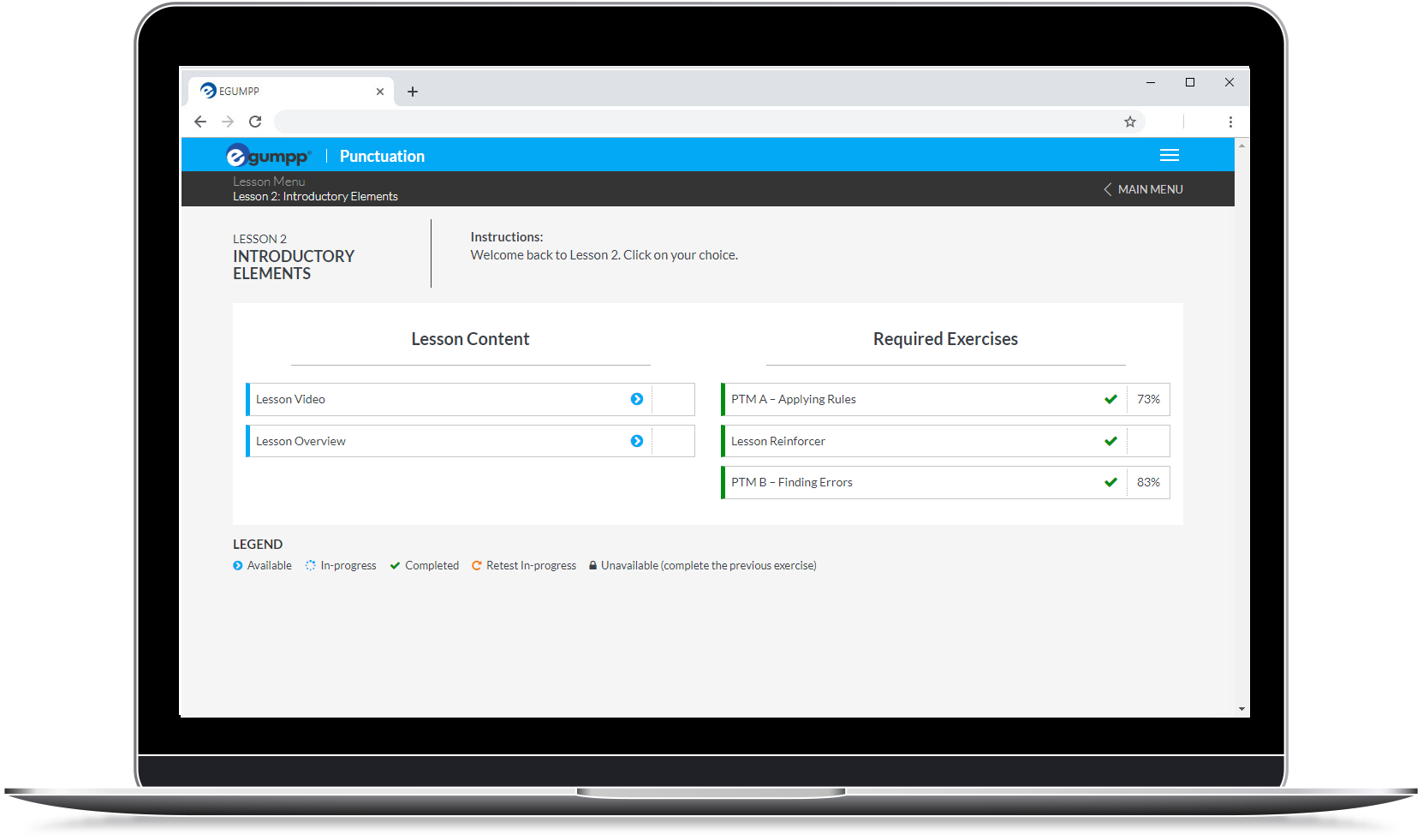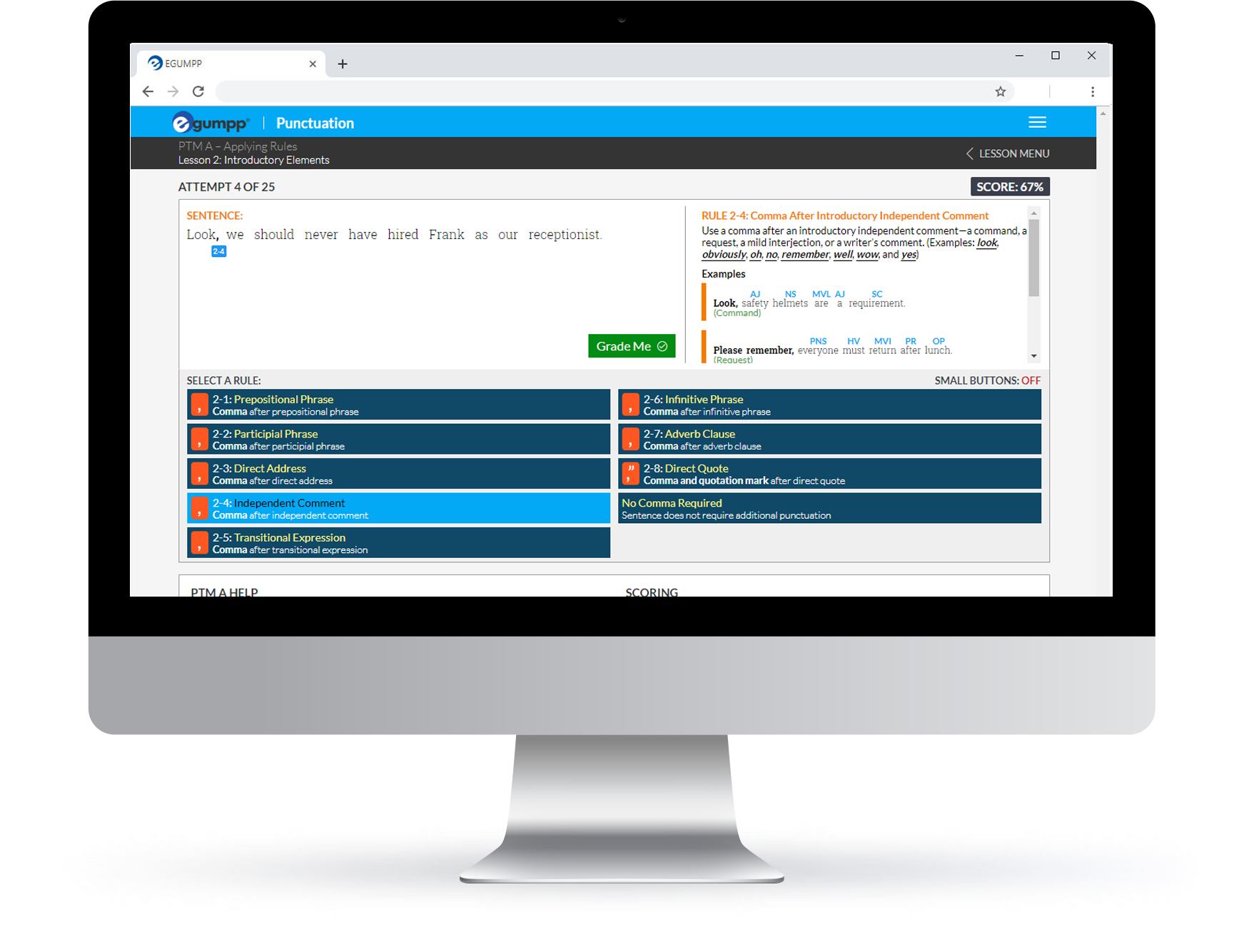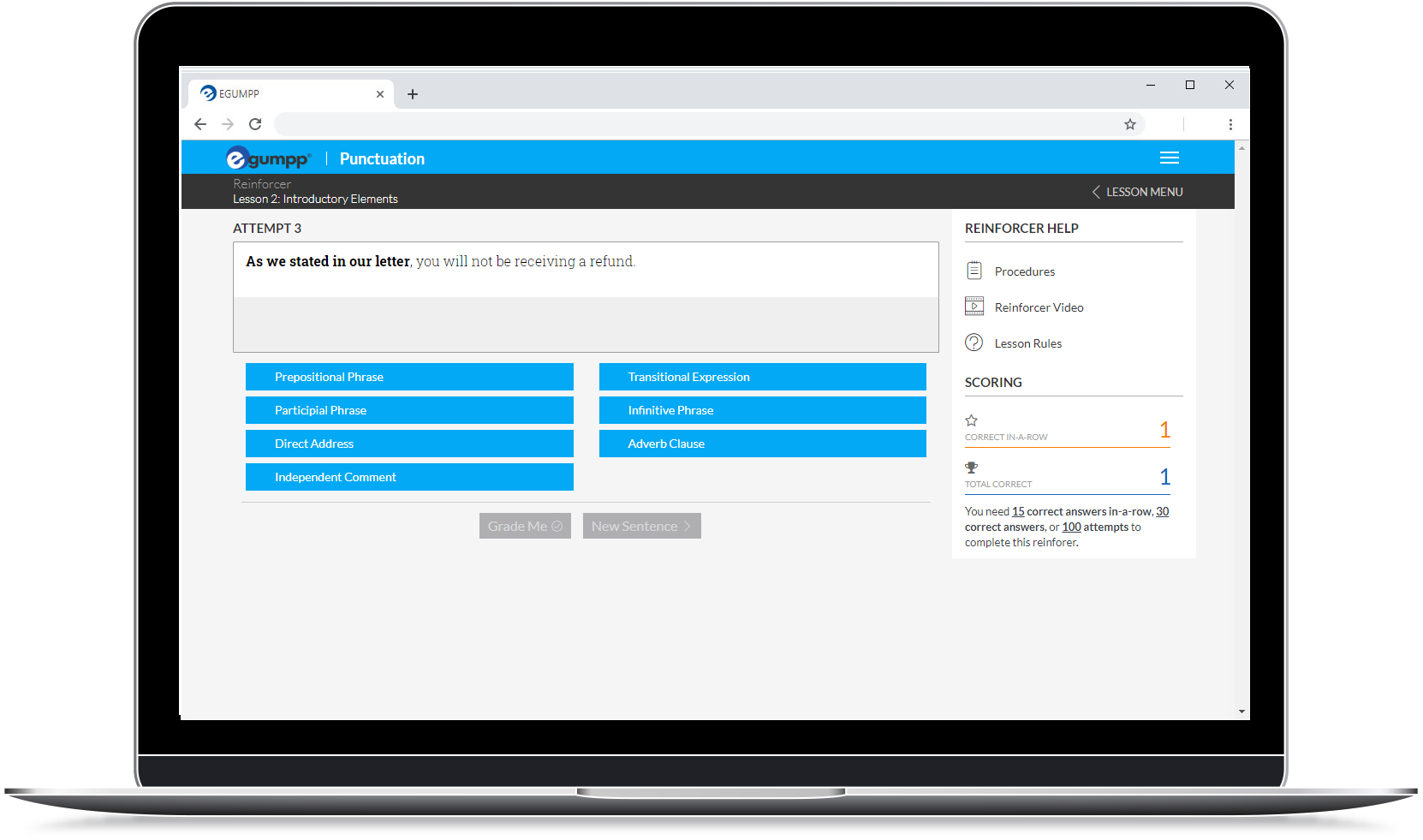Punctuation & Capitalization
The Punctuation & Capitalization module uses an interactive approach to teach student how to correctly punctuate sentences and how to identify punctuation mistakes. This is accomplished by requiring the student to insert the correct punctuation mark and identify the rule explaining why the punctuation mark was inserted. Students who understand punctuation rules are far more likely to correctly punctuate their own writing (as opposed to placing punctuation marks where “it sounds correct”). This module also includes a lesson on capitalization.
Average time to complete: 5 to 7 hours.

Seven Lessons
The Punctuation & Capitalization Module includes these lessons:
- 1. Punctuating End of Sentences
- 2. Punctuating Introductory Elements
- 3. Punctuating Interrupting Elements
- 4. Punctuating Ending Elements
- 5. Punctuating Independent Clauses
- 6. Punctuating Series of Elements
- 7. Capitalization
Lesson Format
Each lesson includes learning content and three interactive exercises.

Each lesson includes these six sections:
- Video Introduction
- Lesson Introduction & Overview
- Rules to Follow
- PTM A – Applying Rules (Graded Test)
- Lesson Reinforcer (Non-graded Exercise)
- PTM B – Finding Errors (Graded Test)
PTM A – Applying Rules
This interactive exercise displays all of the rules pertaining to the current punctuation lesson. The user must insert the correct punctuation in a sentence and select the correct rule that explains the punctuation choice (Lessons 1–6). In Lesson 7, the user must capitalize the word(s) that must be capitalized and select the correct rule that explains why the word(s) should be capitalized.
- Includes video instructions
- Displays the correct answer after each attempt
- Displays a “score-to-beat” to challenge students to improve their grades
- Allows unlimited retests


Lesson Reinforcer Exercise
- Reinforces the key concept within the lesson
- Includes video instructions
- Uses a multiple-choice format – each attempt requires reviewing sentences for specific concepts related to the lesson
- Challenges students with a game-like completion requirement that aids in retaining the lesson concept
PTM B – Finding Errors (graded exercise)
This exercise not only provides additional practice in identifying sentences that have a punctuation error pertaining to the current lesson, but it also provides practice in identifying punctuation errors in sentences presented in the previous lessons. The user must select the correct button or the button that states the type of punctuation error that appears in the sentence.
- Includes video instructions
- Displays correct answers after each attempt
- Reinforces the lesson content from all previous lessons
- Displays a “score-to-beat” to challenge students to improve their grades
- Allows unlimited retests

Watch the Punctuation Module Video
Powerful. Comprehensive. Easy to Use.
The best way to learn more about EGUMPP is to try the free demo.
Our Stories & Latest News
Read the latest news and updates about EGUMPP.

Grammar as a Gateway to Global Understanding and Inclusivity
In our interconnected world, the power of language to unite or divide cannot be understated. As we navigate through diverse cultural landscapes, the role of grammar education extends beyond the...
Beyond Autocorrect: The Unseen Value of Grammar in Technology-Driven Communication
In today’s fast-paced, technology-driven world, the role of grammar education is often questioned. With autocorrect and predictive text features at our fingertips, it’s tempting to assume that grammar proficiency has...